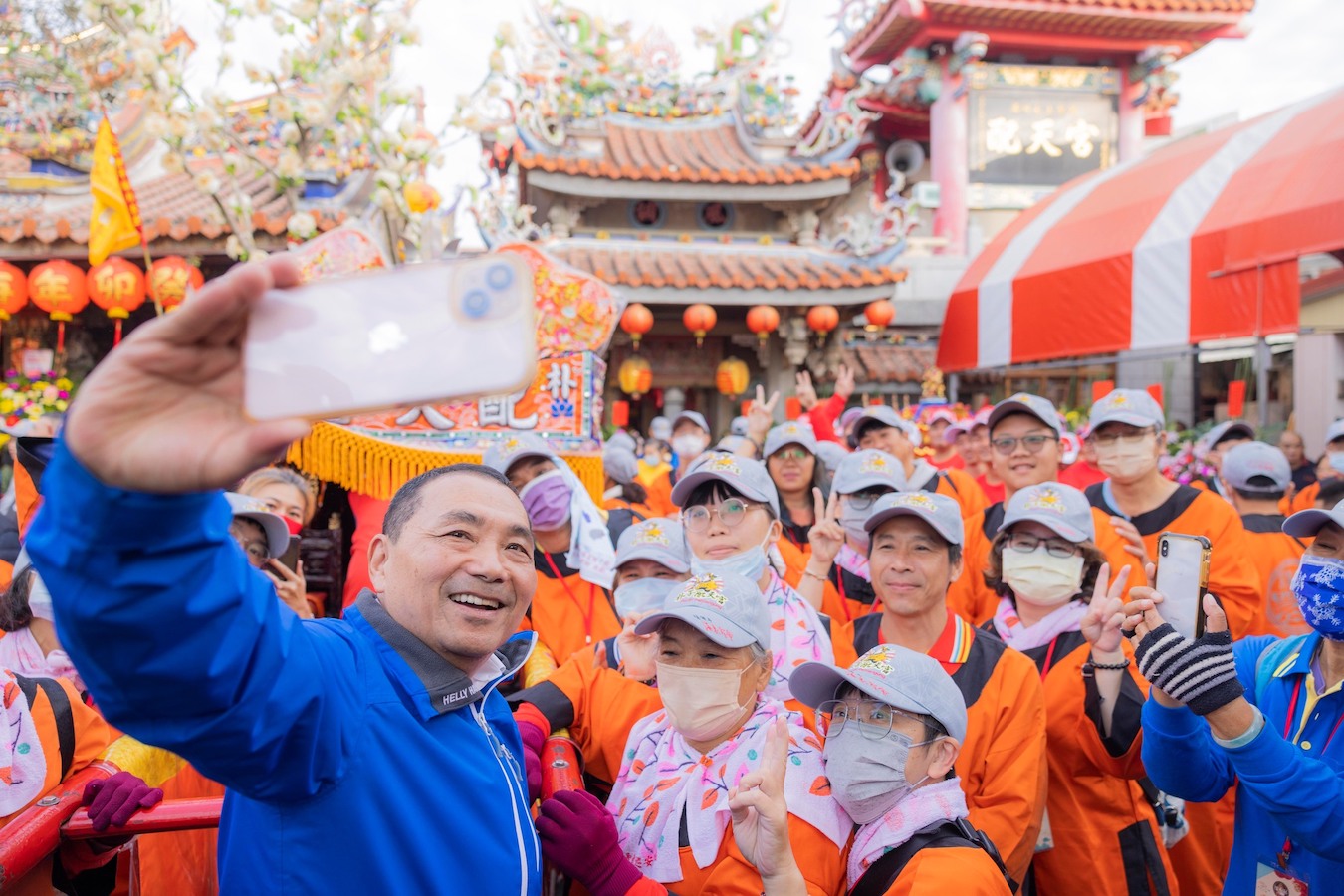by Brian Hioe
語言:
English
Photo Credit: Hou You-yi/Facebook
RECENT COMMENTS by KMT presidential candidate Hou You-yi lashed out at the Tsai administration over the Golden Horse Awards.
Traditionally the flagship film awards of the Chinese-speaking world, since the victory of Our Youth in Taiwan at the 2018 Golden Horse Award for Best Documentary, Chinese filmmakers have not participated in the awards.
Our Youth in Taiwan depicts the student activism of Chen Wei-ting and Tsai Bo-yi, both of which participated in the 2014 Sunflower Movement. Chen becomes one of the student leaders of the movement and runs for public office but falls from grace after past sexual harassment incidents come to light. In the meantime, Tsai deals with the consequences of being a Chinese participant in the Sunflower Movement.
After Our Youth in Taiwan won the award, director Fu Yue gave a speech stating that she hoped to see Taiwan one day as an independent entity. The speech did not explicitly vow support for independence and Fu has stated in public comments that it was not meant to.
Nevertheless, as soon as Fu gave her speech, Chinese participants at the Golden Horse Awards that year began to leave, to avoid being implicated. Since then, Chinese filmmakers have not participated in the Golden Horse Awards, with China instead seeking to build up its competing Golden Rooster Awards, and a ban imposed on participating in the Golden Horse Awards.
Hou’s comments framed the lack of Chinese participants in the Golden Horse Awards as a fault of the Tsai administration, rather than something that occurred because of the Chinese state’s restrictions on its own filmmakers. With the lack of Chinese participants, the Golden Horse Awards now spotlight primarily Taiwanese films, whereas previously they had a pan-Chinese focus. However, Hou went on to denigrate the awards as no longer cared about, and suggesting that this was because of the Tsai administration pushing China away.
 KMT presidential candidate Hou You-yi. Photo credit: Hou You-yi/Facebook
KMT presidential candidate Hou You-yi. Photo credit: Hou You-yi/Facebook
This has been a recurring criticism of the Tsai administration by the KMT, which has framed it as the fault of the Tsai administration that China has prevented Chinese group tours from traveling to Taiwan, as well as Chinese college students from studying in Taiwan. Economic retaliation by China against Taiwan, in announcing import bans of various Taiwanese products, and poaching of Taiwan’s remaining diplomatic allies has also been framed by the KMT as being the fault of the Tsai administration, rather than actions taken by China. The KMT frames the Tsai administration as provoking China due to an obstinate stance on Taiwanese independence, never mind that the Tsai administration has maintained a pro-status quo position and subsequent DPP administrations are likely to do the same.
Likewise, Hou’s comments take place at a time when he has doubled down on appeals to traditionalists in the KMT, promising to make Taiwan a center of Chinese culture if elected. Hou made such comments during visits to the National Palace Museum, though Hou did cross party lines to praise the southern branch of the National Palace Museum–widely understood as a DPP initiative in that it centers Chinese culture as contributing to Taiwanese culture as one of its many influences and is based in Chiayi.
Hou also promised to provide greater subsidies for artists and cultural creatives to travel abroad, learn, and conduct exchanges while promising to protect cultural artifacts from damage. With the latter promise, Hou was leaning into criticisms of the Tsai administration for an incident in which a yellow Kangxi bowl from the Qing dynasty that is part of the National Palace Museum’s collection was damaged. Though the museum’s administration apologized for the incident, the KMT has framed it as reflective of the Tsai administration’s failure to care for traditional Chinese cultural artifacts.
It is to be seen whether the Hou campaign’s promises on the cultural front aid its election chances. Certainly, young people in Taiwan–including artists–generally hew toward support for Taiwanese identity, rather than fidelity toward some notion of Chinese culture. As such, Hou’s promises are likely more directed toward the KMT’s traditional party base than young creatives.

